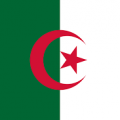Report on the protection of children against ‘sectarian drifts’ to collide with the parents’ right to religious education of their choice ?
By Willy Fautré, Human Rights Without Frontiers
HRWF (04.09.2012) – On 6 September 2012, Rudy Salles, a member of the Parliamentary Assembly of the Council of Europe (PACE), will present a report on « The protection of minors against sectarian influence ». A year ago, Rudy Salles, a member of the French National Assembly, was appointed at the PACE as rapporteur to draft such a report. This issue has been pushed for a long time by French anti-cult groups and MIVILUDES (Inter-Ministerial Mission of Vigilance and Fight against Sectarian Drifts).
Various aspects of France’s anti-cult policy have been criticized by the United Nations (See the Report of the UN Rapporteur on Freedom of Religion or Belief after her visit in situ in 2005), by the US State Department (See their annual report) and by human rights NGOs at the OSCE/ODIHR.
The parents’ right to educate their children according to their religion is one more area of conflict between France and international standards.
France’s attempts to reduce parents’ right to educate their children
In a 2008 report by Georges Fenech, the former head of MIVILUDES, for the French Minister, a psychologist, Sonia Jougla, was quoted to justify special treatment by the Family Matters Judges of cases where a child’s parents belong to so-called sects/cults : « It is even more difficult to protect a child from his parents’ beliefs than from their beatings or their incestuous sexuality ».
On French TV, Fenech also advocated that governments should « go as far as retrieving the child from a sect and place him in an institution or an external family » and he added « parents are not the owners of their children ».
In a political meeting on 2 December 2010 in Lyon, Fenech said that he regretted the law did not allow putting people under psychiatric supervision because of them belonging to « sectarian movements ».
Today sects and tomorrow mainline religions?
Obviously, Jehovah’s Witnesses are one of the targets of France’s policy but devout Catholic or Orthodox families and Muslim parents are also at risk. During his mandate, Fenech has not hesitated to warn some Catholic clerics against ‘sectarian drifts’ in some Catholic communities and prayer groups.
On 3 May 2011, the Presidency of the French National Assembly registered a draft resolution proposing the creation of a parliamentary inquiry commission on fundamentalist and sectarian practices in private schools. The draft resolution was targeting alleged “fundamentalist deviations in private schools” and might be used one day against Catholic, Protestant, Jewish or Muslim schools.
UN Special Rapporteur Report, France’s anti-sect policy and children
The United Nations Special Rapporteur for freedom of religion or belief, Asma Jahangir, after her visit to France on 18 to 29 September 2005 made specific recommendations in this regard (See E/CN.4/2006/5/Add.4, 8 March 2006, Mission to France, 18 to 29 September 2005).
Her Report of 6 March 2006 provided:
112. The Special Rapporteur urges the Government to ensure that its mechanisms for dealing with these religious groups or communities of belief deliver a message based on tolerance, freedom of religion or belief and on the principle that no one can be judged for his actions other than through the appropriate judicial channels.
113. Moreover, she recommends that the Government monitor more closely preventive actions and campaigns that are conducted throughout the country by private initiatives or Government-sponsored organizations, in particular within the school system in order to avoid children of members of these groups being negatively affected. [emphasis added]
Handbook on European Non-discrimination Law and religious education
In the Handbook on European Non-discrimination Law published by the European Union Agency for Fundamental Rights jointly with the European Court of Human Rights (ECtHR), it is said that the ECtHR has elaborated on the idea of ‘belief’ in the context of the right to education under Article 2 of Protocol 1 to the ECHR, which provides that the State must respect the right of parents to ensure that their child’s education is ‘in conformity with their own religious and philosophical convictions’. The ECtHR stated:
‘In its ordinary meaning the word “convictions”, taken on its own, is not synonymous with the words “opinions” and “ideas”, such as are utilized in Article 10 (…) of the Convention, which guarantees freedom of expression; it is more akin to the term “beliefs” appearing in Article 9 (…) which (…) denotes views that attain a certain level of cogency, seriousness, cohesion and importance.’ (ECtHR, Campbell and Cosans v. UK (Nos. 7511/76 and 7743/76), 25 February 1982, para 36).
International conventions defend parental rights
Many of the international declarations protecting children’s rights also guarantee parental rights concerning childrearing matters:
International Convention on Civil and Political Rights (ICCPR), Article 18(4): “The States Parties to the present Covenant undertake to have respect for the liberty of parents and, when applicable, legal guardians to ensure the religious and moral education of their children in conformity with their own convictions.”
Convention on the Rights of the Child (CRC), art. 29(1)(c) says: “States Parties agree that the education of the child shall be directed to . . . [t]he development of respect for the child’s parents, his or her own cultural identity, language and values, for the national values of the country in which the child is living, the country from which he or she may originate, and for civilizations different from his or her own.”
International Covenant on Economic, Social and Cultural Rights (ICESCR), art. 13(3): “The States Parties to the present Covenant undertake to have respect for the liberty of parents . . . to ensure the religious and moral education of their children in conformity with their own convictions.”
European Convention on Human Rights (ECHR), protocol 1 art. 2 says: “No person shall be denied the right to education. In the exercise of any functions which it assumes in relation to education and to teaching, the State shall respect the right of parents to ensure such education and teaching in conformity with their own religious and philosophical convictions.”
Conclusions
The terminology to be used when discussing human rights issues is of utmost importance. The UN language in this regard is neutral and universal. It is not influenced by the perception in a particular cultural and religious context or in a particular part of the world, such as European and American countries with Christian traditions.
The UN experts and treaty bodies use the term “religious or belief systems” to cover the broad spectrum of religions and worldviews, and the term “religious or belief communities” to encompass the various forms of religious, spiritual and non-religious communities or organizations, whether they are historical or new. The UN language does not endorse or include the terms “sects”, “cults” or “sectarian drifts”.
The UN treats all religious or belief communities around the world and their members on an equal footing. Therefore, UN member states have a duty to neutrality and should not discriminate against specific religious or belief communities; nor should they adopt a specific law that puts specific mechanisms in place and implements specific policies to target specific groups.
If there is any form of physical, sexual or psychological maltreatment of minors, such acts should be prosecuted in the same way whatever the religious affiliation of the perpetrator but “no one can be judged for his actions other than through the appropriate judicial channels” as the United Nations Special Rapporteur for freedom of religion or belief, Asma Jahangir, said in her recommendations to the French authorities after her visit to France in 2005 (See E/CN.4/2006/5/Add.4, 8 March 2006, Mission to France, 18 to 29 September 2005).




